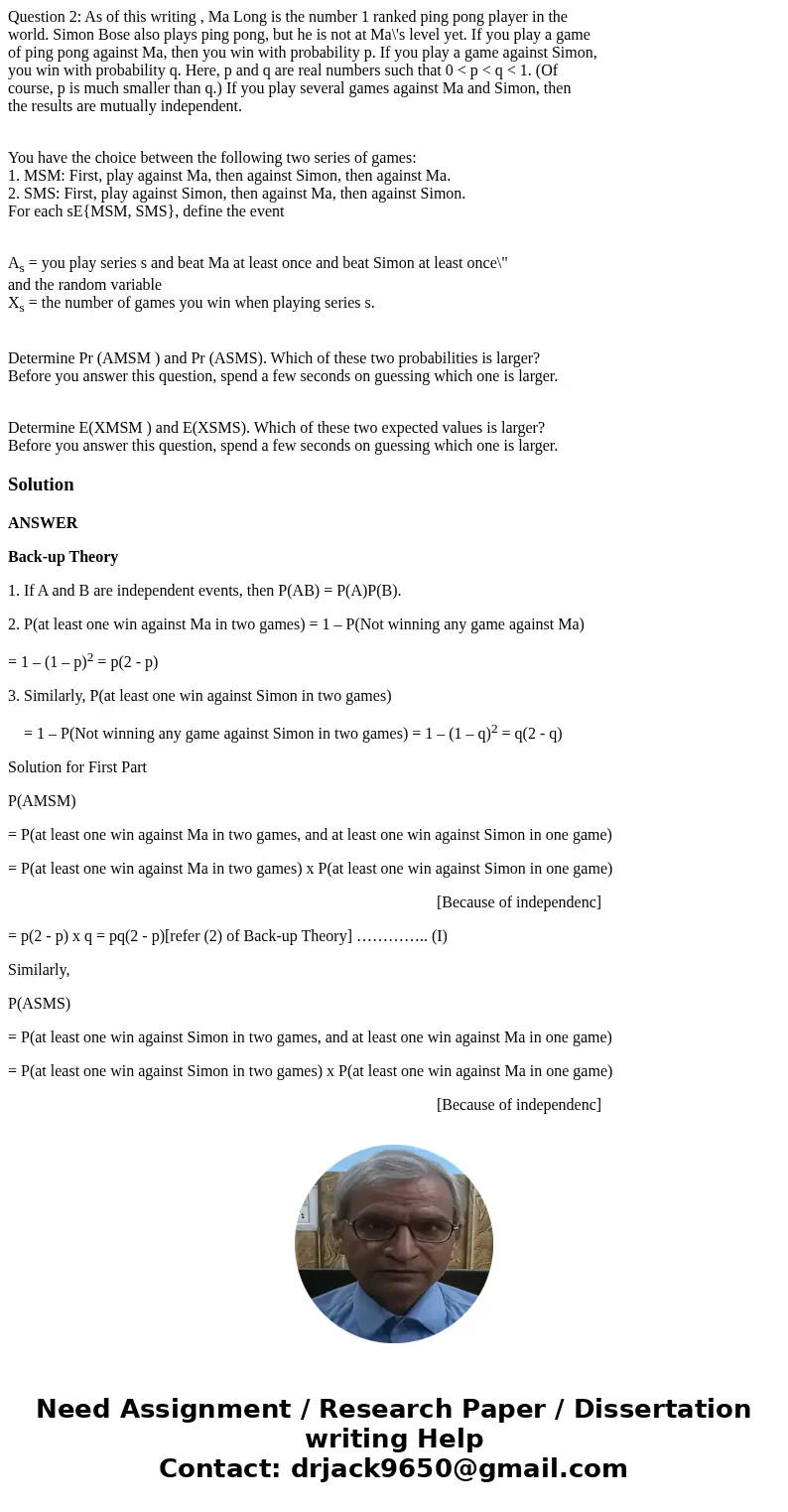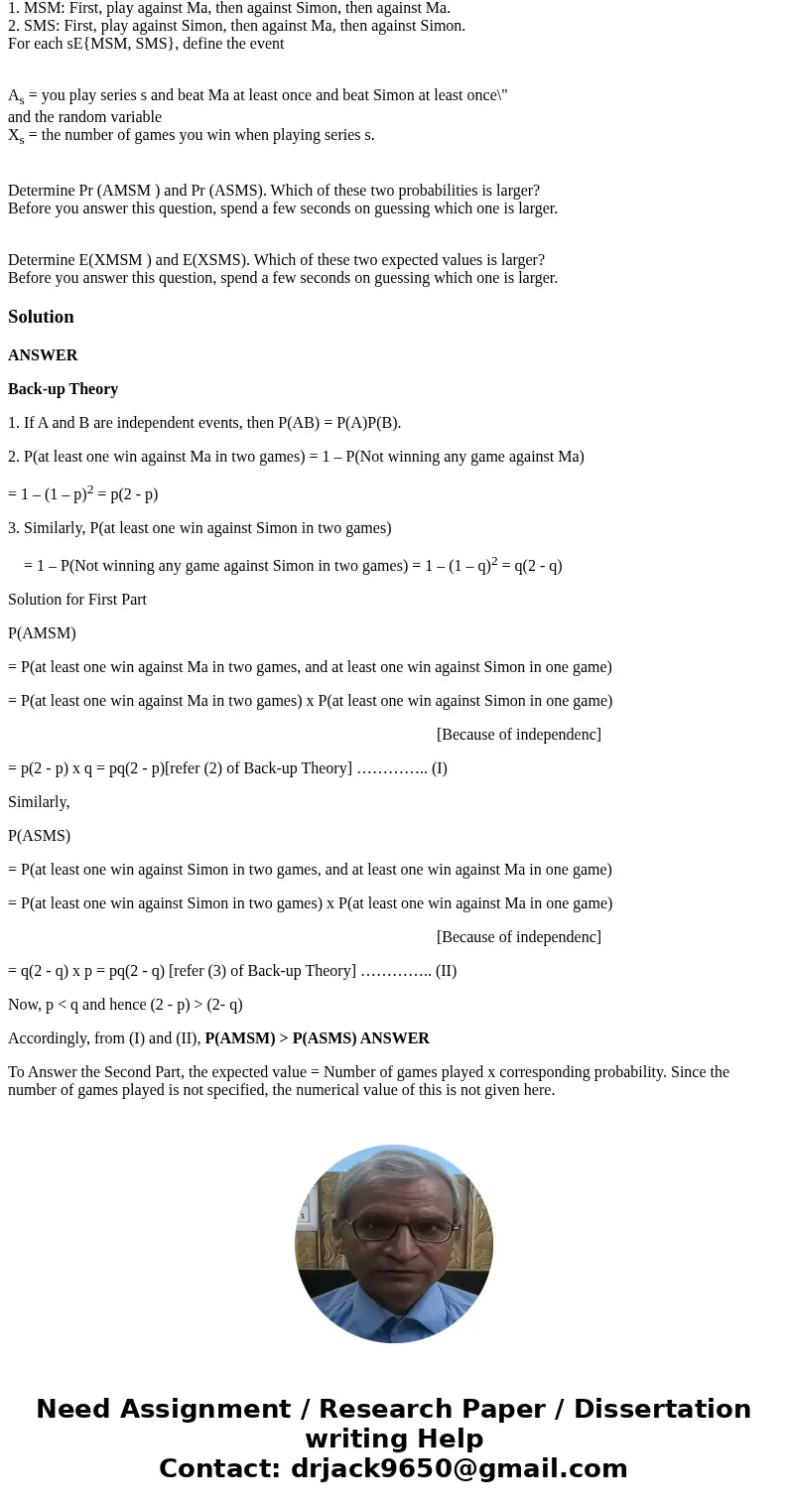Question 2 As of this writing Ma Long is the number 1 ranke
Question 2: As of this writing , Ma Long is the number 1 ranked ping pong player in the
world. Simon Bose also plays ping pong, but he is not at Ma\'s level yet. If you play a game
of ping pong against Ma, then you win with probability p. If you play a game against Simon,
you win with probability q. Here, p and q are real numbers such that 0 < p < q < 1. (Of
course, p is much smaller than q.) If you play several games against Ma and Simon, then
the results are mutually independent.
You have the choice between the following two series of games:
1. MSM: First, play against Ma, then against Simon, then against Ma.
2. SMS: First, play against Simon, then against Ma, then against Simon.
For each sE{MSM, SMS}, define the event
As = you play series s and beat Ma at least once and beat Simon at least once\"
and the random variable
Xs = the number of games you win when playing series s.
Determine Pr (AMSM ) and Pr (ASMS). Which of these two probabilities is larger?
Before you answer this question, spend a few seconds on guessing which one is larger.
Determine E(XMSM ) and E(XSMS). Which of these two expected values is larger?
Before you answer this question, spend a few seconds on guessing which one is larger.
Solution
ANSWER
Back-up Theory
1. If A and B are independent events, then P(AB) = P(A)P(B).
2. P(at least one win against Ma in two games) = 1 – P(Not winning any game against Ma)
= 1 – (1 – p)2 = p(2 - p)
3. Similarly, P(at least one win against Simon in two games)
= 1 – P(Not winning any game against Simon in two games) = 1 – (1 – q)2 = q(2 - q)
Solution for First Part
P(AMSM)
= P(at least one win against Ma in two games, and at least one win against Simon in one game)
= P(at least one win against Ma in two games) x P(at least one win against Simon in one game)
[Because of independenc]
= p(2 - p) x q = pq(2 - p)[refer (2) of Back-up Theory] ………….. (I)
Similarly,
P(ASMS)
= P(at least one win against Simon in two games, and at least one win against Ma in one game)
= P(at least one win against Simon in two games) x P(at least one win against Ma in one game)
[Because of independenc]
= q(2 - q) x p = pq(2 - q) [refer (3) of Back-up Theory] ………….. (II)
Now, p < q and hence (2 - p) > (2- q)
Accordingly, from (I) and (II), P(AMSM) > P(ASMS) ANSWER
To Answer the Second Part, the expected value = Number of games played x corresponding probability. Since the number of games played is not specified, the numerical value of this is not given here.


 Homework Sourse
Homework Sourse